Baku. 18 October. REPORT.AZ/ Iraqi Prime Minister Haider Al-Abadi officially announced launch of offensive to draw terrorist group Islamic State from Mosul after two years four months and seven days.
Iraqi Army from Guver and Geyyara and Kurdish militants (Peshmerga) of northern Iraq from Hazer in the eastern Iraq started operations from three directions simultaneously at late hours on October 17.
On October 16 coalition forces launched air attack on Islamic State’s positions while terrorists fired oil stocks in the area to make territory invisible.
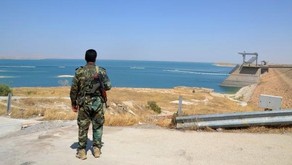
First target of the campaign is to clear Hamdani and Karakush districts of Mosul from terrorists.
Al-Abadi in his television statement on launch of operations asked Mosul residents for support, but he didn’t mention militants of northern autonomy, Ninova security team trained by Turkish military in Bashika and Hashdi Shabi militants supported by Iran.
Nevertheless, Kurdish Peshmerga will advance until 10 km and Ninova team until 2 km from Mosul. According to plan, center of the city is to be controlled by Iraqi army and police forces.
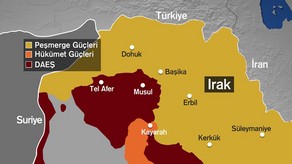
The Islamic State attacked the province mainly resided by Turkmens, Arabs and Kurds on June 4, 2014 and took control of Mosul on June 10. Many explained easy takeover of Mosul by terrorists with Iraqi army’s unwillingness to fight for province. There were even rumors that Iraqi military left hundreds of millions of dollars in Mosul banks, guns and military equipment in the city which were taken by ISIL as trophy. In other words, Islamic State increased its financial and military power after occupation of Mosul. Terrorists also took control of oil fields of the province.
Controversies between and within Iraqi government and military, which considered to be main reason behind Mosul occupation by ISIL, resulted in resignation of former Prime Minister Nuri al-Maliki.
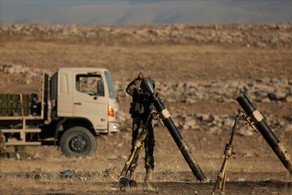
Actually, this is just an episode of processes in Iraq.
Iraqi government and coalition forces have been preparing to take control of Mosul for 18 months. During last year operation was canceled twice – in spring and summer.
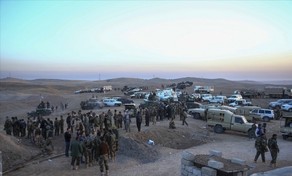
All states fighting against ISIL approved Mosul recapture. That’s why there is possibility that Mosul will be taken back from terrorists in coming days. This operation can be hindered only if one of regional forces supports terrorists, which is of low possibility.
Occupation of Mosul boosted popularity of ISIL. Recapture of the province may affect not only Iraq’s but also Syria’s future. Mosul operation should be considered as manifestation of power and attitude of 60 states declared war against terrorists in Iraq and Syria. Success of offensive will determine future of Iraq. Status of Mosul after recapture is of no less importance. Who will control the province – Kurdish autonomy or government in Bagdad? How the rights of ethnic groups in Mosul will be implemented? How the problem of religious discrimination between Sunni and Shiite will be resolved?
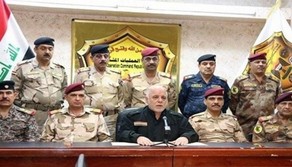
From this perspective, Iraq’s neighbors Turkey and Iran, although doesn’t seem active or rarely named, must be regarded as important stakeholders of the operation. Bagdad government frequently expresses its protest supported by Tehran against Turkish presence in Iraq.

On the other hand, territorial integrity of Iraq is under question. PKK terrorist groups attacking Turkey’s territorial integrity for 30 years are located in the territory of this country. The PKK functions in the same way as it did under Saddam Hussein’s and previous prime-minister Nouri al-Maliki’s governments.

Official Ankara states its support for territorial integrity of Iraq and Syria. But Turkish military launches regular campaigns against terrorists located in territories of its neighbors due to inability of central governments of Iraq and Syria to control all parts of their countries. How can Turkish government remain observer to threats for its territorial integrity in times when those outside of the region launch military campaigns against terrorism? Of course it can’t.
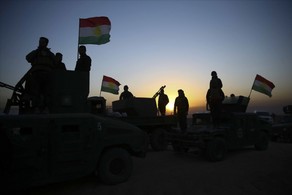
There are only two thousand Turkish military in Iraq. They are training local security forces against terrorists in Bashika near to Mosul.
Turkey is concerned about ethnic rights of Iraqi Turkmens. It is understandable, because Bagdad manages policies aimed at assimilation of Turkmens.
Iran is interested to preserve second Shiite state in the region and keep it under its control. After overthrow of Saddam Hussein prime ministers of Iraq are always elected from Shia community, while president is Kurdish Sunni. Such separation of powers resembles that of Lebanon, where government is formed by Muslims while president must be Christian. Shiites also participate in government.
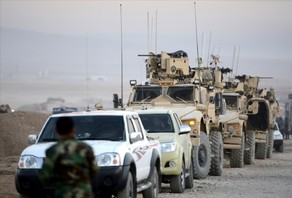
Developments in Lebanon show inefficiency of such separation. Last 13 years of Iraqi government also prove separation of power between Shiites and Kurds inefficient.
Kurds also don’t conceal their desires. They want to create independent state in northern Iraq embracing Kirkuk and Mosul. Realization of this desire mostly depends on positions of Turkey and Iran. Terrorists acting on behalf of Kurds launch regular terrorist attacks within borders of Turkey and Iran targeting their territorial integrity.

Being graduated from university as power engineer Al-Abadi immigrated to United Kingdom in 1970. He defended doctorate thesis in Manchester University and was among critics of Saddam Hussein government and active member of party straggling against him. Two of his brothers were executed and one brother was arrested in by BAAS party in 1982. He was denaturalized in 1983. His father died in exile and buried in London.
We present Al-Abadi’s life story because he is in power with the support of western countries. British approach is likely to be applied to solution of problems in Iraq, which means there will always remain unresolved topics to ignite conflict in the future.
Thus, recapture of Mosul is not the end of problem, but rather the first step towards new Iraq.


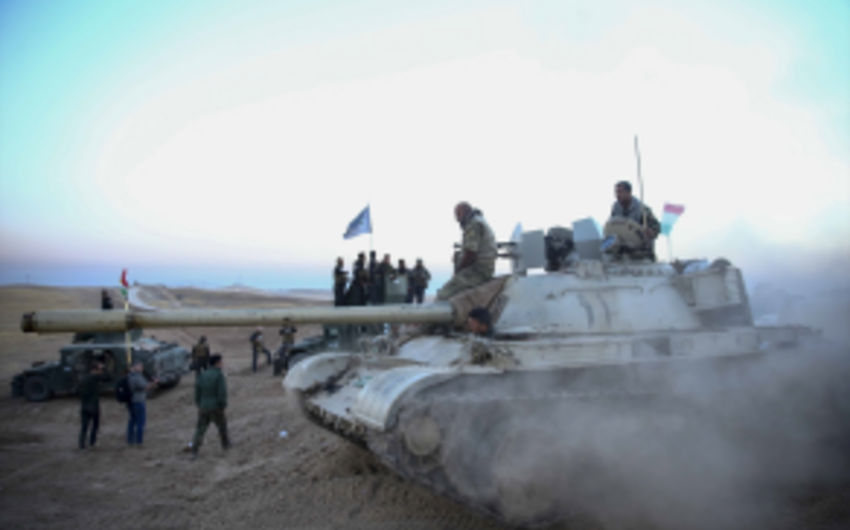 https://static.report.az/photo/0bb8af6e-6768-4ea9-975b-dea603ed026f.jpg
https://static.report.az/photo/0bb8af6e-6768-4ea9-975b-dea603ed026f.jpg

